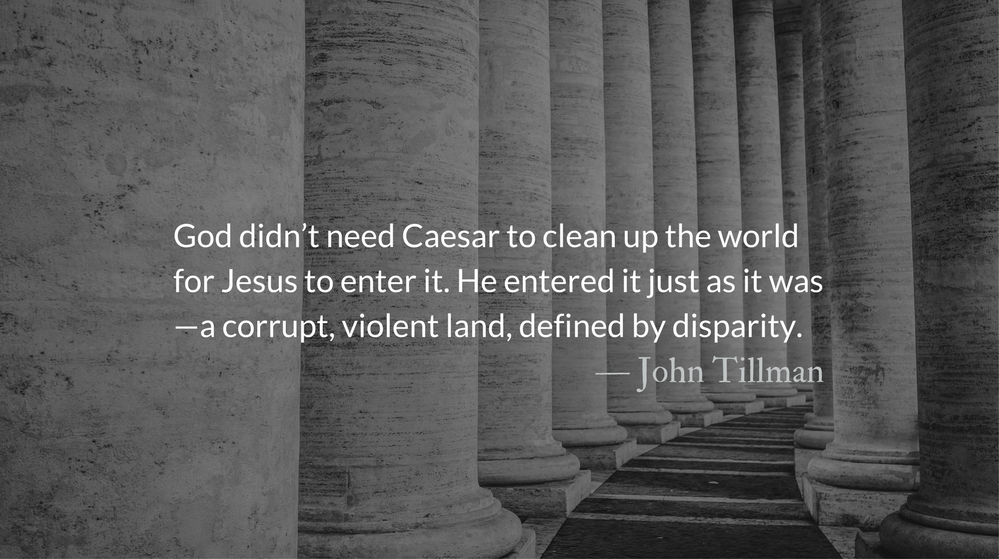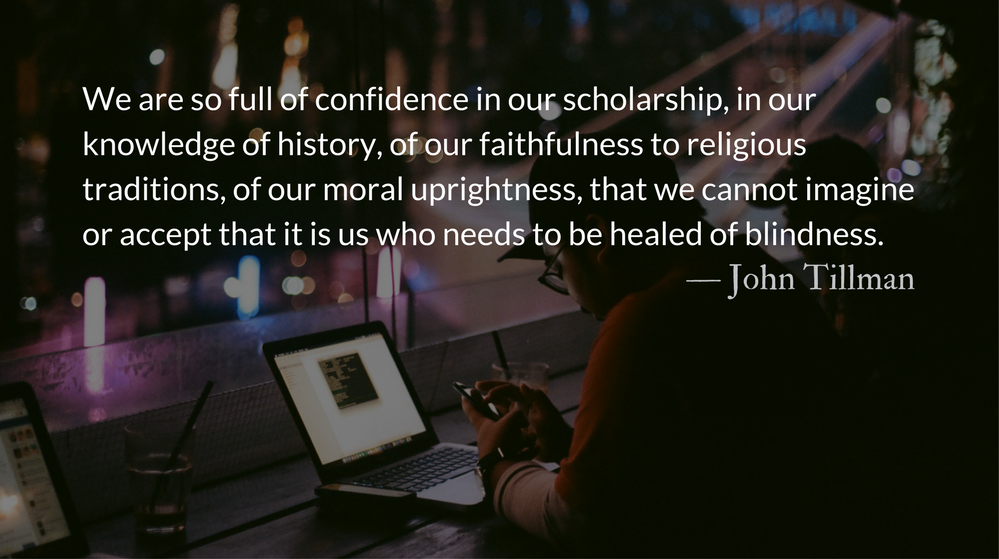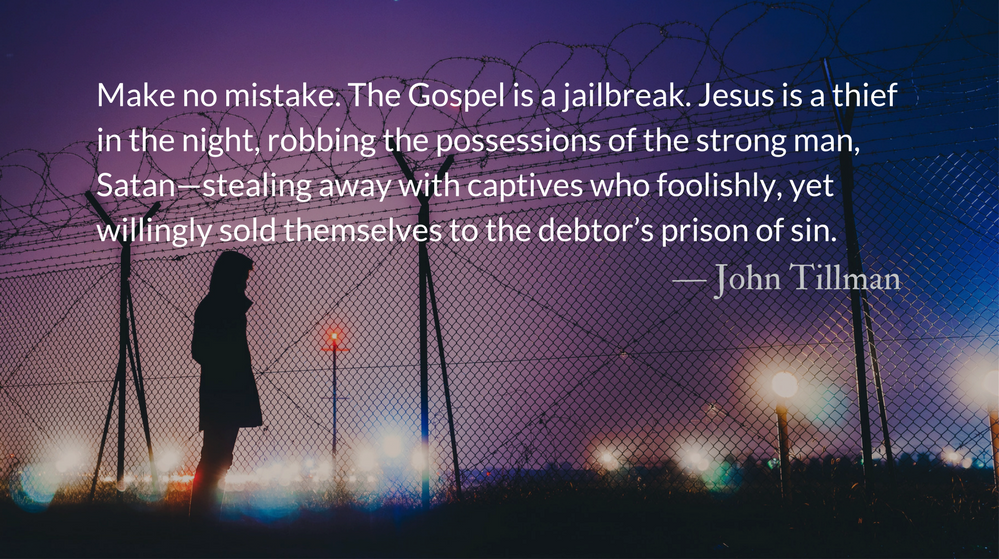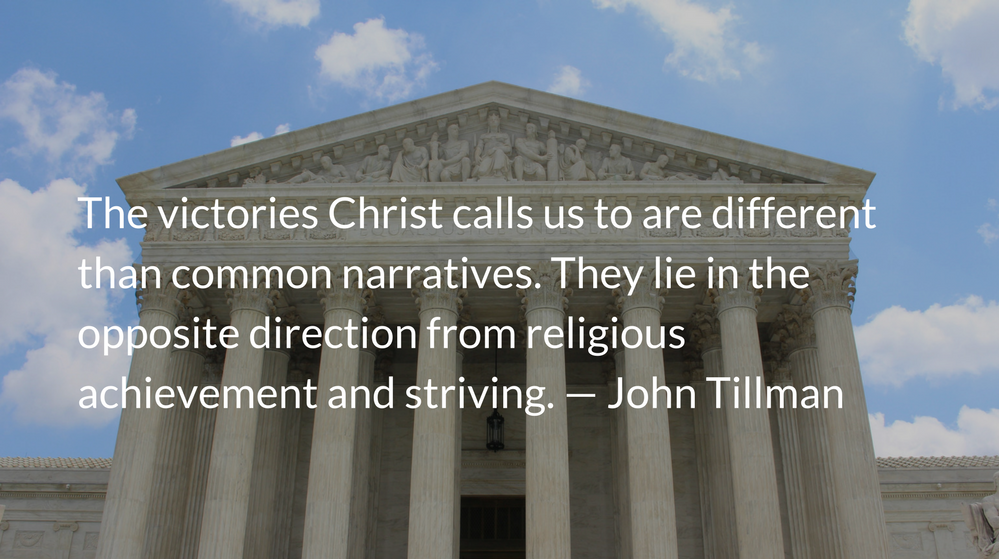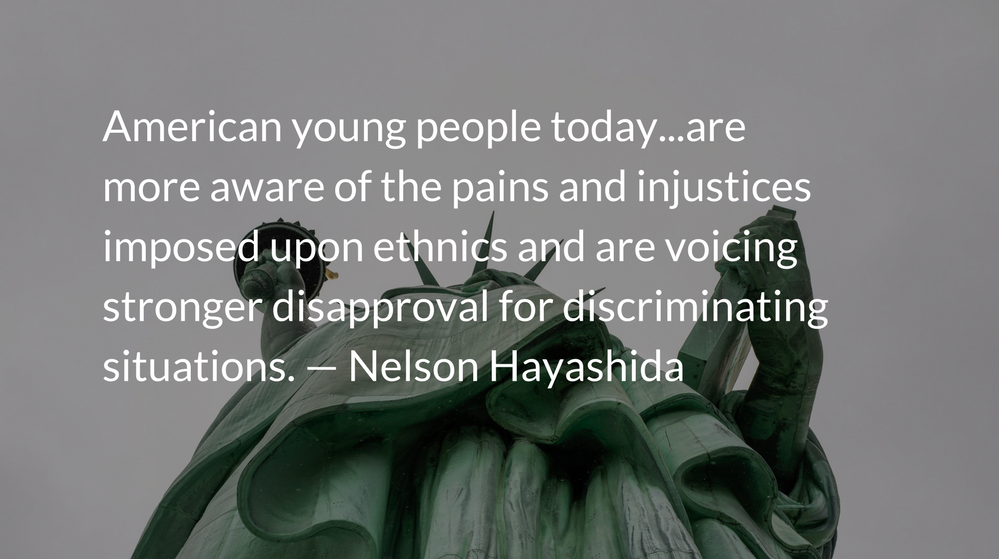Scripture: Luke 4.18
…to set the oppressed free, to proclaim the year of the Lord’s favor….
Acts 4.18-20
Then they called them in again and commanded them not to speak or teach at all in the name of Jesus. But Peter and John replied, “Which is right in God’s eyes: to listen to you, or to him? You be the judges! As for us, we cannot help speaking about what we have seen and heard.”
Reflection: Liberty for the Oppressed :: Epiphany
By John Tillman
Totalitarian regimes tend to pile up political terms in their names that belie the actual political realities within their borders—for example, People’s, Democratic, and Republic. If all three of these words are in the name of a country, you don’t want to live there. In a similar way The Pax Romana is a bit of a misnomer.
The Pax Romana has, at times, been spoken of in glowing terms by historians and theologians, as if Caesar was doing the world a favor so that the Prince of Peace could be born in a time of peace. But Christ wasn’t born during a time of true peace, but a false peace built on government oppression and enforced by atrocity.
God didn’t need Caesar to clean up the world for Jesus to enter it. He entered it just as it was—a corrupt, violent land, defined by disparity. Jesus was born in the midst of a forced government migration that was enacted to better enforce a crushing tax burden. He fled to a foreign country to escape an army that without compunction murdered children at the whim of their dictator. He worshiped in a Temple in which it was not uncommon for soldiers to slaughter worshipers among their sacrifices.
Christ’s audience for his Nazareth sermon was quite familiar with oppression. Western Christians, as much as we may think we are being oppressed, know little about it.
In the past ten years, Western governments and culture have become only marginally less friendly to Christianity, yet we have become anxious and desperate, willing to sign any political bargain in order to prevent losing cultural sway. We seem to care more about our influence in culture than Christ’s influence in us.
To manifest Christ, we must declare freedom for others who are oppressed, not declare that our oppression must cease. We need to make the drastic change of focus that the Apostles made. In Acts chapter 4, before the Sanhedrin, we see that Peter and John’s selfish focus on political gain has completely vanished. As often as they spoke truth to power, as often as they stood their ground despite threats of imprisonment and even death, not once do we ever see them bargaining with a politician.
The Apostles never ask for, nor receive political freedom. They simply carry out the actions that Christ calls them to—actions that caused the city to rejoice. The road back to societal influence for the church doesn’t run through elected officials, it runs through doing the work of Christ to lessen the burden on the oppressed.
The Call to Prayer
Sing to the Lord and bless his Name; proclaim the good news of his salvation from day to day.
Declare his glory among the nations and his wonders among all peoples.
For great is the Lord and greatly to be praised; he is more to be feared than all gods. — Psalm 96.2-4
– From Christmastide: Prayers for Advent Through Epiphany from The Divine Hours by Phyllis Tickle.
Full prayer available online and in print.
Today’s Readings
Ezra 4 (Listen – 4:27)
Acts 4 (Listen – 5:15)


